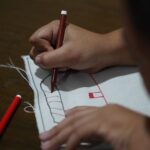“Kapag may itinanim, may aanihin.”
This proverb best describes the gains of Project LAWA (Local Adaptation to Water Access) and BINHI (Breaking Insufficiency through Nutritious Harvest for the Impoverished) of the Department of Social Welfare and Development (DSWD) as it empowered 134,702 poor families in addressing their nutrition issues and food insufficiency through farming.
“Dahil we are an agricultural country, sinasabi nga natin paulit ulit, yet, we experience hunger…kaya kailangan nating tiyakan na may pagkain, so paanong magkakaroon ng pagkain kung walang magtatanim…At yung pagbabalik, sa pagmamahal sa agrikultural na kultra ay ibinabalik din po ng DSWD,” Director Maria Isabel Lanada of the DSWD’s Disaster Response Management Bureau (DRMB) said on Thursday (July 10) during the DSWD Media Forum at the Central Office’s New Press Center in Quezon City.
Director Lanada told reporters the Project LAWA and BINHI communities already contributed 437,400,000 kilos of harvested vegetables, and fruit crops, providing nutritious food supply to its beneficiaries.
Under the project, the DSWD conducts cash for training/and work (CFT/CFW) for the target beneficiaries, capacitating them in farming, aquaculture, and climate change adaptation.
“Isang comprehensive at wholistic na approach dahil tungkulin natin sa gobyerno ang pangalagaan yung karapatan ng taong bayan lalo na yung karapatan nilang hindi magutom. Para ma-ensure talaga yung food security ay available, ito yung naisip talaga ni Secretary Rex Gatchalian na sustainable, kasi una yung cash for training bayad sila, minimum wage. Tapos yung hindi maagaw, kasi natuto ka na eh and at the same time pag hindi nagtanim at naging tamad ka, hindi ka talaga makakain,” the DRMB chief explained to reporters at the forum.
The content of the training provided in the first stage of project implementation includes
knowledge on nutrition and proper care of the environment.
“Sa DSWD, ini-introduce natin ang masustansiya, masarap at mura, yung 3Ms ni Secretary Rex na gusto niya i-integrate sa mga programa sa training pa lang, tinuturuan na sila ng tamang pagkain, tamang pagtatanim at tamang pagkalinga sa ating kalikasan, mga nature-based approach,” Director Lanada said.
After the cash for training, the second stage is the conduct of cash for work wherein the beneficiaries engage in the actual planting, fish farming, and developing of water systems.
Aside from the food crops, the Project LAWA and BINHI has also implemented 1,576 water access projects, made through the cash for work stage.
“The prevention and mitigation na kay LAWA at BINHI. Yung paghahanda bago tumama ang El Nino nag-iimbak na tayo ng tubig, kaya may local adaptation to water access, yung mga small farm reservoir, yung mga earth and dam, yung mga appropriate technology, in partnership with the Department of Agriculture,” Director Lanada noted.
Most importantly, the LAWA and BINHI conducts another cash for training wherein the beneficiaries are specifically trained, together with the local government units (LGUs), for the management and sustainability of their farm and aquaculture projects.
“Ang DSWD, we promote rights-based approach, sa mandato po at utos ni Secretary Gatchalian. So, we as public servants, at duty bearers, we need to ensure na yung ating taumbayan, naiintindihan nila ang proyekto na ginawa o finacilitate ng DSWD,” the DRMB director pointed out.
To ensure that the beneficiaries are fully empowered and organized into groups to establish sustainability with the help of the LGUs, the Project LAWA and BINHI is implemented for a full three-year cycle in the target area.
“Ito po ay tatlong taon gagawin ng LAWA and BINHI sa isang partikular na partner LGUs…We need to stay for three years hanggang sa ma-attach sila, hanggang ma-organize sila hanggang sa magkaroon ng cooperative among themselves, hanggang maging people’s organization, maging isang samahan…dahil karugtong, po ng after three years nandiyan po ang ating Sustainable Livelihood Program, tutulungan naman ang ating partner-beneficiaries kung paano ang marketing, financial management system,” Director Lanada said. #( GDVF)


